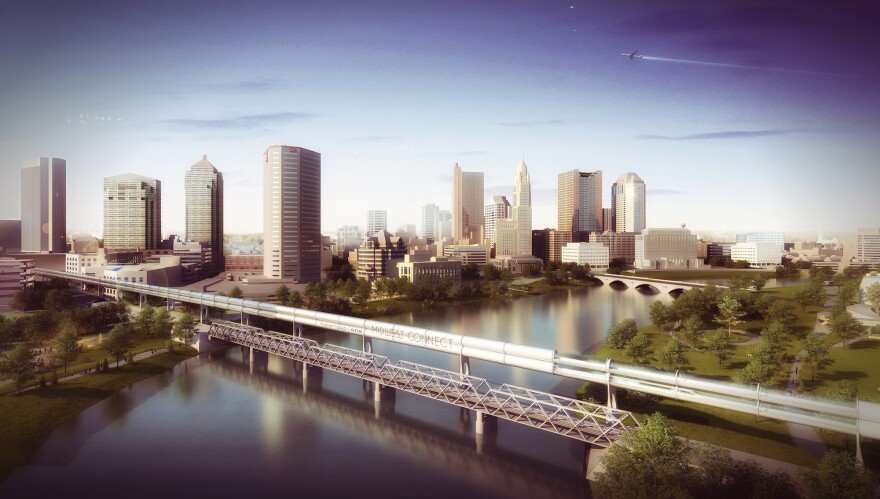Columbus is taking another step toward the creation of a hyperloop connecting the city with Chicago and Pittsburgh.
The Mid-Ohio Regional Planning Commission announced on Wednesday that it named consulting firm AECOM to study the feasibility of a Midwest hyperloop. The proposed route would stop through Pittsburgh, Columbus, Marysville, Lima, Fort Wayne and Chicago.
MORPC also hired engineering firm WSP to examine the potential environmental impacts of both a hyperloop and traditional passenger rail.
"I think of this one as being a variable and a control, because there are no U.S. standards for hyperloop at this point in time, but there are for rail,” says Thea Walsh, hyperloop project lead for MORPC.
Walsh says the studies will also help MORPC estimate the cost of a hyperloop, as well as possibilities for revenue generation and community investment.
The Midwest Connect Hyperloop proposal was one of 10 winners of the Virgin Hyperloop One worldwide competition last year, but Walsh says this project is the fastest-progressing in the United States.
Though the technology is still being tested, hyperloop passengers travel in pods that shoot through above-ground tubes at upwards of 700 mph. A trip from Columbus to Pittsburgh would take just 18 minutes, and Columbus to Chicago would take 29.

“With a growing population that we have coming to Central Ohio, we need groundbreaking solutions that’s going to help us, because we don’t want to be sitting in traffic,” Walsh says.
Either traditional rail or a hyperloop would be filling demand in the area: Columbus is the second-largest city in the U.S. without an intercity train or bus system.
Altogether, this phase of the project is slated to cost $2.5 million. Columbus chipped in $250,000 to the effort, with other funding coming from the Ohio Department of Transportation and municipalities like Lima, Marysville and Union County.
The feasibility study is slated to be completed in March 2019, and the first part of the environmental study is due in July 2019.
A competing hyperloop study is being undertaken by the Northeast Ohio Areawide Coordinating Agency, which is examining a route between Cleveland and Chicago.





